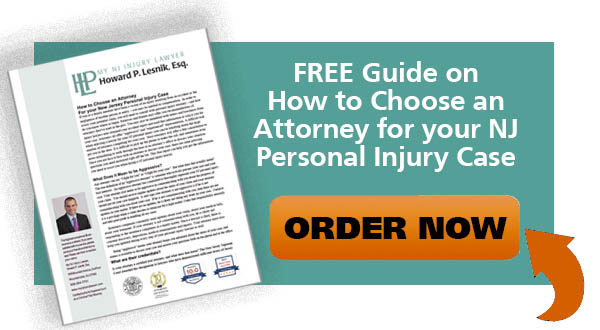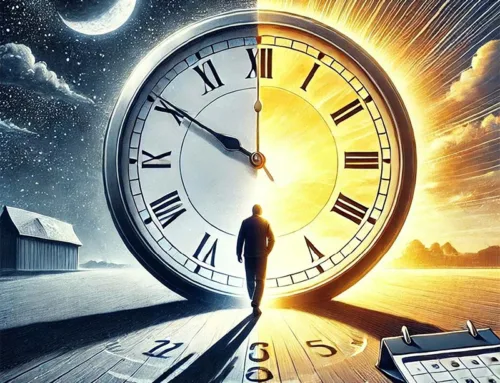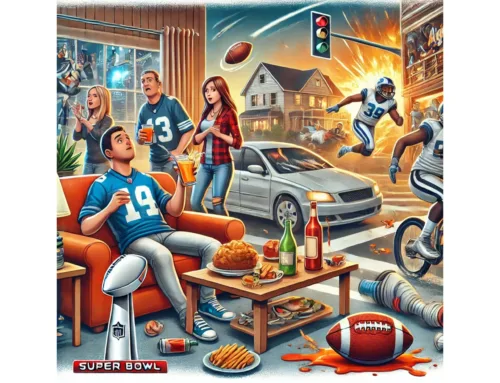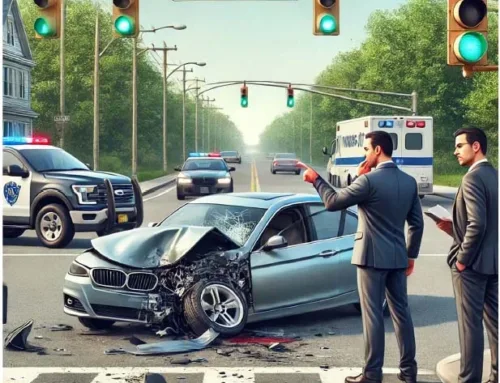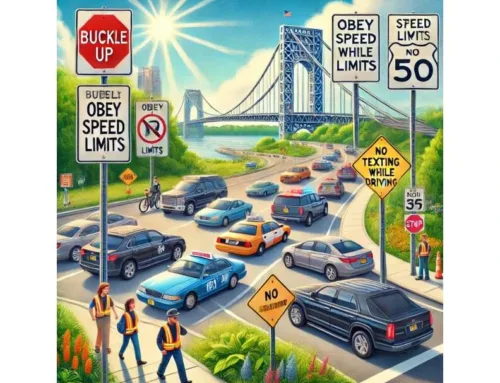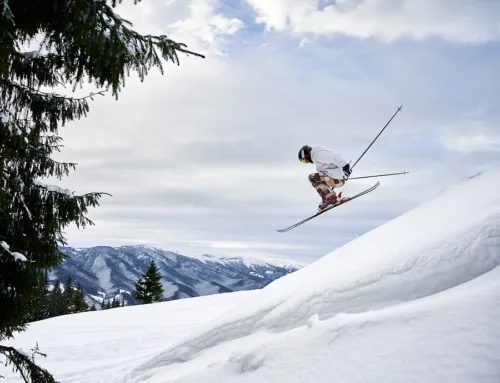Most of us know this feeling all too well: You’re driving down the highway, keeping pace with the flow of traffic, and everything seems normal – when suddenly the car ahead of you hits their brakes hard. You manage to slow down in time (hopefully you were maintaining a safe following distance!) and look around to spot the cause of their abrupt braking. Maybe they spotted an obstacle in the road, like a fallen tree branch or a piece of furniture that tumbled off the back of a truck? Or perhaps they spotted a deer on the edge of the road preparing to make a daredevil sprint across four lanes of traffic?
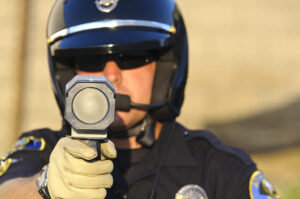 But that’s not it, you promptly realize, as the clump of traffic creeps forward another few hundred yards. Someone noticed a police car parked up ahead, maybe on the median, or off on the side of the road, and they slammed their brakes in a moment of police-induced panic, setting off a chain reaction in the cars behind them. Now there’s a traffic snarl that extends several vehicles behind you and stretches ahead until you clear the next hill or round a bend, and everyone feels safely out of sight of the cop car.
But that’s not it, you promptly realize, as the clump of traffic creeps forward another few hundred yards. Someone noticed a police car parked up ahead, maybe on the median, or off on the side of the road, and they slammed their brakes in a moment of police-induced panic, setting off a chain reaction in the cars behind them. Now there’s a traffic snarl that extends several vehicles behind you and stretches ahead until you clear the next hill or round a bend, and everyone feels safely out of sight of the cop car.
In some ways, it’s an understandable instinct. Getting a speeding ticket is embarrassing and expensive, and quite a few people (whether for good reasons or not) are wary of police, and keen to avoid being pulled over. However, we see this reflexive hard-braking reaction very often, and frequently when it’s completely unwarranted. People who are already driving within the speed limit still sometimes feel the need to hit the brakes when they see a parked police car sitting by the road. These motorists have internalized the importance of being cautious about their speed around cops a little too strongly, causing them to over-correct in an abrupt, knee-jerk way even when doing so is unnecessary.
Yes, the police cars parked on the side of the road or sitting on the highway median are often waiting to catch speeders, though sometimes they are there for an entirely different reason. Regardless of why the police car is present, don’t let that fear response take over when you notice it. Even if they are watching for speeders, if you’re maintaining the speed limit or safely following the flow of traffic, they have no reason to bother you – or even notice you. If you’re concerned about avoiding a ticket, the best way to do so is to blend in with the flow of traffic around you, and don’t make any unusual or erratic driving movements that would draw attention to your vehicle.
Drivers who hit their brakes abruptly upon spotting a police car may soon find themselves with bigger problems than the prospect of a speeding ticket. This behavior is simply dangerous – it’s the equivalent of brake checking, in practice if not in intent. It forces the cars behind you to brake abruptly as well, or maneuver around you in an effort to avoid a collision, possibly swerving into other lanes or off the pavement entirely. If the driver behind you isn’t alert, or was following too closely, they might accidentally rear-end you. Sudden braking at the sight of a cop car puts yourself and others at risk without cause.
In addition to the dangers, this behavior also results in unnecessary traffic slowdowns. How often have you been making your regular commute or traveling on the highway when you hit a traffic snarl, and find yourself wondering what’s going on to cause it? You don’t see any signs of construction or an accident that could explain the delay. Then you reach the thick of the slowdown and see a police car with its lights off sitting on the roadside, and all the other drivers tiptoeing past it. There’s no need for this; no New Jersey driver needs more traffic frustrations in their life.
Certainly, if there’s an actual emergency, if something is actively happening that requires caution from passing motorists, then drivers should (and indeed, are required by state law to) slow down and pass the site with caution. This shouldn’t involve an abrupt slam on the brakes either, but you should decelerate carefully and lower your speed until you are safely past the area where the emergency activity is taking place. However, that’s not what’s under discussion here. If you need to slow down for construction, an accident, or because someone has been pulled over, the flashing emergency lights, flares, or other signage will alert you to the situation. A single police car, parked off the road with its lights off, is not an emergency that you need to slow down for. You and everyone else on the road are safer simply driving cautiously but normally.
Contact MyNJInjuryLawyer Howard P. Lesnik
If you or a loved one suffered an injury in an accident in NJ, you should contact an attorney familiar with handling these claims. An experienced NJ Injury Lawyer will know how to obtain medical records, videos, photographs, experts, locate witnesses and contact the insurance company so you can make a claim for your injuries.
My NJ Injury Lawyer Howard P. Lesnik, Esq. offers complimentary strategy sessions to address any issue or questions you may have for your injury claim in NJ.
Please contact NJ Injury Lawyer Howard Lesnik, Esq., immediately if you were involved in an accident. I personally handle NJ personal injury cases on a regular basis. Please contact me now by email, by phoning 908.264.7701, or by completing the form to the right to schedule your complimentary 30-minute strategy session. Call me direct and I will answer 5 questions that you have about your potential claim.


